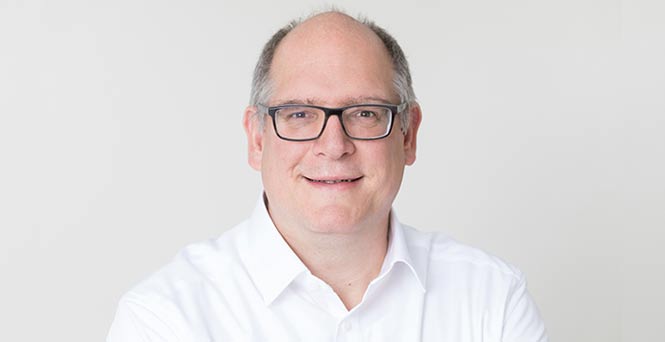URL: https://v1.desy.de/site_www-desy/content/about_desy/lead_scientists/stephan_roth/aufgabenuebersichtsplan_v1_20220131_eng.html/@@siteview
Breadcrumb Navigation

Stephan Roth
Sustainable materials for functionalized bio-based polymer materials
Stephan Roth is Senior Scientist for Functionalized Bio-based Polymer Materials at DESY and Professor for Scattering-based Characterization Techniques in Fiber and Polymer Technology at the Royal Institute of Technology (KTH) in Stockholm, Sweden. His research in sustainability includes the development of hybrid materials from renewable resources for flexible electronics and photovoltaics, the development of green processes in thin film technology using the principles of green chemistry and the application of machine learning for advanced data analysis. One aim of his activities is to develop new hybrid materials for a circular bioeconomy and sustainable energy generation. The starting materials for this are often wood components such as lignin and cellulose. These new hybrid materials can be used in a wide range of applications: Optoelectronic applications, flexible solar cells, sustainable thermoelectrics, actuators, advanced biosensors, (bio)polymer-inorganic colloid hybrid materials as well as lithography and 3D printing.
Stephan Roth investigates new methods for the production of metal cluster polymer nanocomposites and integrates novel, bio-based polymer colloids with customized chemical properties into the hybrid materials.
Structure formation through self-organization on the nanoscale plays a decisive role in the production of all these hybrid materials. Therefore, Stephan Roth uses the excellent possibilities for in situ and operando experiments at DESY and at large research facilities worldwide, including complementary neutron scattering, to investigate the influence of the nanostructure on the physical properties. The fabrication methods for thin film technology, which are investigated in situ, range from spray coating of liquid phases to physical vapor deposition of metals on polymer layers.
Academic career
| 2023 | Appointment as Professor for Scattering Based Characterization Techniques in Fibre and Polymer Science. KTH Royal Institute of Technology, Department of Fibre and Polymer Technology, Teknikringen 56-58, SE-100 44 Stockholm, Sweden |
| 2022 | Appointment as Lead Scientist Sustainable Materials (FS-SMA) for functionalized polymeric materials on bio-basis at DESY |
| 2016 | Appointment as Adjunct Professor in Synchrotron Radiation Characterization in Fibre and Polymer Technology. KTH Royal Institute of Technology, Department of Fibre and Polymer Technology, Teknikringen 56-58, SE-100 44 Stockholm, Sweden |
| 2006-2022 | Staff scientist & Beamline responsible P03/MiNaXS beamline at PETRA III |
| 2004-2006 | Beamline Responsible of BW4/HASYLAB |
| 2001-2004 | Postdoctoral fellow at the European Synchrotron Radiation Facility (ESRF) at the Beamline ID13 |
| 2001 | Degree (Promotion) Dr. rer. nat. at the Technische Universität München. Title of the PhD-thesis: ''Konzeption und neutronenoptische Optimierung des kalten Flugzeitspektrometers am FRM-II'' |
Education
|
1998-2001
|
PhD student at Physik-Department E13 (Prof. Dr. W. Petry), Technische Universität München. Topics: Design and neutron optical optimization of the time-of-flight spectrometer with cold neutrons at the new neutron source Forschungsreaktor München II (FRM-II); experiments on glass-forming liquids and superfluid 4Helium at time-of-flight spectrometers
|
|
1997
|
Degree as Diplom-Physiker. Title of diploma thesis: ''Abschrecken aus dem unterkühlten Zustand''
|
|
1992-1997
|
Study of physics at Rheinische Friedrich-Wilhelms-Universität Bonn
|


